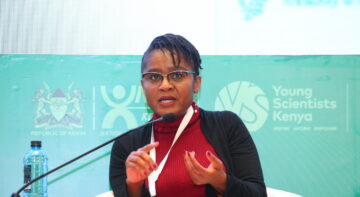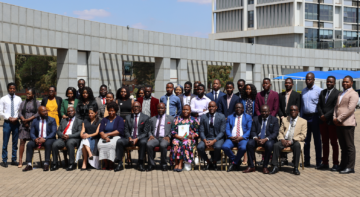Blogs

African technocrats are among the most under-appreciated and vilified professionals on the continent. Yet, despite being caricatured as unqualified, inept, lazy, corrupt, and even partisan to political interests, they still play a decisive role in decision-making, policy development and programme implementation with notable impact for the socio-economic development of their countries.
At AFIDEP, we have worked closely with technocrats across the continent in supporting their use of evidence in decision-making. My experience from this work has convinced me that the stereotypes above do not reflect the many professionals in African governments who are highly educated and patriotic to the cause of improving the lives of their people. Many technocrats are caught in-between competing and conflicting interests and power dynamics, in poorly-resourced settings and institutionalised inertia that makes decision-making from the middle a difficult and thankless job.
I participated in the just concluded 2017 Global Evidence Summit in Cape Town, South Africa. The Summit brought together many experts from across the globe to deliberate on effective ways of enabling and improving evidence-informed decision-making (EIDM). The evidence implied is mainly scientific evidence, although the conference also considered other types of evidence. EIDM is a fast developing field in its own right with its theories and specialists to boot. During the conference, I attended and participated in many sessions where hurdles to EIDM were discussed. These discussions got me reflecting critically on the difficulties that technocrats face in actualising EIDM. In this blog, I share some instances that present difficulties for these technocrats to actualise EIDM.
Technocrats are often caught in-between political interests and the tyranny of expertise by development partners, researchers and consultants hired to fill “capacity gaps” in public service. On the political front, I deduce that high-level civil servants with the responsibility to make impactful policy decisions that are then endorsed by the Executive, or that have to be approved by Parliament, are among the most anxious citizens about the outcomes of general elections in Africa. With a change in government, elections can easily torpedo the best-laid plans to roll out a painstakingly developed policy that adhered to the best tenets of EIDM. This is especially possible if the winning team deems the policy to be opposed to its own ideas, or may even agree with the policy, but is unwilling to let the departing regime take credit for initiating the policy or programme.
In other instances, politicians campaign on the basis of populist policy changes without an implementation plan that will ensure efficient, effective and impactful outcomes. Politicians then expect the technocrats to implement these decisions when they win elections. For instance, many populist programmes aimed at providing free health and education services on the continent have fallen victim to this as often, the resources (financial and human) to successfully implement these programmes are not factored in the campaign rhetoric. The subsequent poor quality of service or denial of service to the people unfortunately ends up being blamed on the civil servants, and not the politicians.
On the opposing pressure point for the technocrats are the bilateral partners and expert consultants they work with to support governments in policymaking and programme implementation. There are several hurdles here to watch out for despite the tyranny of expertise offered to our technocrats. Obviously, one of these is a misalignment of priorities between the needs of the country as understood by the government technocrat and as advocated for by the development partners. It is true that the latter in recent years have tried to pay more attention to the priorities of their partner governments. However, it is also true that these organisations have interests and strategic plans developed in the capitals of the developed countries that are the over-arching guiding principle for their engagement with African governments. Unfortunately, their solutions for the problems are usually formulaic for regional needs rather than contextualised for country needs. It makes sense to the development partners because it is cost-effective to have a “template’ rather than to find a fitting solution for each country. The argument can also be made that it is up to the African technocrats to contextualise the template and take care of the heterogeneity within their countries. However, even if they wanted to do this, the technocrats do not usually have the resources to implement their ideas. It is also a fact that the power dynamics between the African technocrats and development partners is skewed to the latter, and rather than outright reject the development aid offered, African technocrats would rather try to make the best of the situation.
Still on resources, African governments often allocate little or no resources to facilitating EIDM. To actualise EIDM, one needs supportive institutional systems and mechanisms such as reliable Internet, functional library, access to e-databases, access to quality data coming from government service provisions points, regular platforms for exchange of information and ideas, among others. Yet from our work in different African countries, we have encountered many technocrats who work in environments lacking such basic supportive institutional infrastructure that they need to be able to actualise EIDM.
Another aspect of resources that impedes EIDM is the sad fact that many African governments often allocate little or no resources for the implementation of policies. This means that while technocrats can formulate evidence-informed policies, these don’t get translated into interventions that can change the lives of their people.
Based on these reflections, I think that the parody of the African civil servant as unqualified or inept fails to fully take into consideration some of the difficulties they face in their contexts to actualise EIDM and impact the lives of their people. This is not to say that the African technocrats are blameless in the failures of EIDM on the continent, but rather to highlight the difficult task they face, caught in the middle of the dynamics of decision-making.
Related Posts





